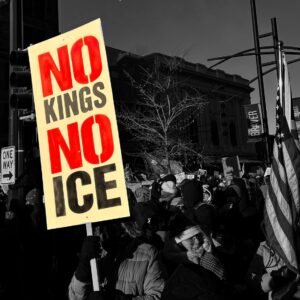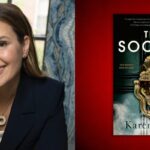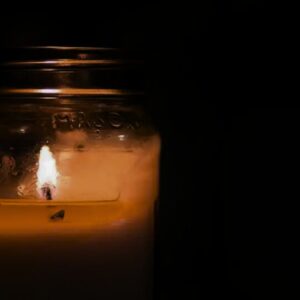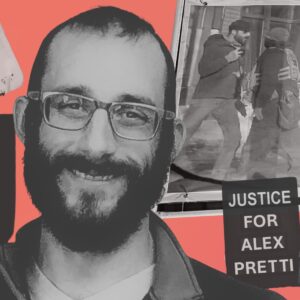
Writers Resist: In Pursuit of Wild Hope
VOICES OF DISSENT ON MLK'S BIRTHDAY
This Sunday, January 15, on the birthday of Dr. Martin Luther King, Jr., writers will gather across the country in a public expression of resistance against the inauguration of Donald Trump. From Seattle to Decatur, Omaha to New York, America’s poets, novelists, journalists, and storytellers will raise their voices against the rising clamor of intolerance, greed, and cruelty that threatens to define this nation’s next four years (and beyond). The main event in New York City will feature former poets laureate Robert Pinsky and Rita Dove leading an impressive cohort of writers and artists—Laurie Anderson, Alexander Chee, Masha Gessen, Roseann Cash, Jeff Eugenides, Amy Goodman, Jacqueline Woodson, and many more—in a united show of resistance to the incoming administration. In anticipation of that day, and beyond, Writers Resist has invited contributions from across the country, asking writers what resistance means to them. Today (as we did yesterday and Wednesday), Lit Hub will publish a selection of those contributions.
Ghazal: The Dark Times
Marilyn Hacker
Tell us that line again, the thing about the dark times…
“When the dark times come, we will sing about the dark times.”
They’ll always be wrong about peace when they’re wrong about justice…
Were you wrong, were you right, insisting about the dark times?
The traditional fears, the habitual tropes of exclusion
Like ominous menhirs, close into their ring about the dark times.
Naysayers in sequins or tweeds, libertine or ascetic
Find a sensual frisson in what they’d call bling about the dark times.
Some of the young can project themselves into a Marshall Plan future
Where they laugh and link arms, reminiscing about the dark times.
From every spot-lit glitz tower with armed guards around it
Some huckster pronounces his fiats, self-sacralized king, about the dark times.
In a tent, in a queue, near barbed wire, in a shipping container,
Please remember ya akhy, we too know something about the dark times.
Sindbad’s roc, or Ganymede’s eagle, some bird of rapacious ill omen
From bleak skies descends, and wraps an enveloping wing about the dark times.
You come home from your meeting, your clinic, make coffee and look in the mirror
And ask yourself one more time what you did to bring about the dark times.
Marilyn Hacker’s most recent books are A Stranger’s Mirror: New and Selected Poems 1995-2014 (Norton, 2015) and DiaspoRenga, a collaboration with Deema Shehabi (Holland Park Press 2014).
_______________________
| RESIST |
Niki Herd
to overcome the temptation to wallow in [ insert word ] as it relates to the election of the 45th President of the various states of America, though there is fear, bewilderment & anger about that which is moving toward a further strengthening of corporate power & an acceleration of government toward privatization.
think Sandra Bland think Rekia Boyd think Freddie Gray – inhabiting a black body was already precarious but now supporters of the President-Elect have unspoken latitude to articulate intolerance [ hate ] with impunity;
an intolerance that the various states of America were founded upon & with few exceptions continues to be a defining part of the country’s identity &
as such if the Office of the President at all reflects the culture of a people — left or
right — the historical & more recent proclivities toward mediocrity [ education ] & narcissism [ social media ] & misogyny [ off the football field too ] suggest there should be no surprise the states are left with the lowest common denominator.
to overcome the temptation to a) mythologize the past or b) construe fallacy or c) fail to admit partiality towards the 44th President of the various states
for the purpose of perspective one might think of Adichie’s warning about the dangers of a single story;
which is to say restrictions upon peaceful assembly [ patriot act expansion ] exist now & these restrictions will exist tomorrow & drones circle above in a quest for targets & they will circle tomorrow as well,
albeit to a greater degree &
from this angle all one has is the courage to articulate truth as it is seen/felt & the written word.
one wants to be hopeful for you dear reader, but hope too along with everything else has been co-opted & this girl has never been good at selling much of anything —
Niki Herd’s debut collection of poems, The Language of Shedding Skin, was published as part of Main Street Rag’s Editor’s Select Series in 2010. She lives in Houston.
_______________________
How to Write a Course Correction
Erin Hoover
Let me tell you a story, not about poverty, but about how we talk about poverty:
Before I moved to Tallahassee to teach and study writing, I crafted messaging documents to “frame” poverty for a team of fundraisers talking to donors of a large anti-hunger organization. As part of my job, I pitched stories about who was hungry and why, so I am very familiar with how journalists write about people who are poor.
Over eight combined years in that job, I realized that there were just some things you couldn’t say about class, and to a lesser degree, race.
Just as the presidential campaigns did in 2016, we performed focus groups. I sat in a dark room behind a one-way mirror and listened to current and potential donors respond to questions designed to help us figure out how to ask them for money.
In those dark rooms, over the years, a story aboout how Americans feel about poverty began to take shape.
In a sense, it is one of our oldest and most beloved American myths about class mobility, in which hard work pays off and we all experience equal opportunity for both bad and good things to happen. The myth suggests that for the best among us, poverty is temporary, a condition that can be escaped with gumption and the occasional hand up, like having enough to eat and a chance to learn. It rests on the belief that those who remain poor have a moral failing, a belief I have heard repeated even by poor people. Culling impoverished Americans into “deserving” and “undeserving” offers a convenient excuse to avoid taking any action. Moreover, in the minds of white people, poverty is almost never linked to race, as whites prefer to ignore how systemic racism economically rewards them as it punishes people of color.
I listened as variations on this story came out of the mouths of high-end Wall Street donors, middle-class moms, and senior citizens a few steps away from the food pantry themselves. Ignoring facts in favor of a more comforting story about poverty persisted across lines of class, race, age, and gender. This was not only a little scary, but proof of the power of our favorite American lie.
One of the most disturbing takeaways from our recent presidential election has been realizing how little facts mattered. But for me, pitching stories and writing messaging documents about poverty several years ago, I found that facts were only useful if they already fit into a story people would accept. The myth I heard in focus groups didn’t really match what I saw when I visited food programs or many of the poverty statistics I read, but it helped me raise money as long as I stayed focused on the “deserving” poor. And I pitched stories about poverty that fit this definition because they were what journalists would write and their editors would take. In hopeful moments, I believed I could tweak and expand the definition of poverty from the inside of those pieces. The work was incremental. It was hard.
The right understands how important stories are. The left is beginning to. And you know what? The work will be incremental, and hard here, too.
*
A personal story about dissonance:
As I write this, the presidential election result continues to inspire breathless questions about who—or what—granted our president-elect the win, considering how wrong the polls leading up to the election were.
“Working-class white people” became the apparent answer almost as soon as the election was conceded. And I guess it’s still the answer, if you turn on CNN or MSNBC and listen to the roundtables attempting to predict exactly when the president-elect’s base will grow upset with his cabinet choices, or how the Democratic party can pay more attention to white people. It is as though to simplify the story, we have decided to ignore the many white, middle-class, educated voters who joined the white working class in supporting Trump. And miss another chance to perform an anthropological study in Macomb county? No, thank you.
How is it possible for so many pundits, politicians, academics, activists, and journalists to spend weeks fixating on how white working-class America voted without, somehow, really talking about either whiteness or poverty? (I am a white person who grew up in rural Pennsylvania, and this is what I noticed. You may have noticed different omissions.)
Social media has lit up with criticism of how the election and transition have been covered. But beyond simple journalistic incompetence, if you listen carefully, you’ll hear that our cultural mouthpieces are talking about what it is like to live in America using narrative frameworks that either no longer apply or never did. The words and stories they use misunderstand American life in a way that may feel comfortable or familiar to many but which is not accurate. These narratives enable people to talk about whiteness and poverty without really hearing beyond an echo chamber of the same tired, and often harmful, stories. In some cases, the language we hear has been willfully manipulated. In other cases, the language we need is missing—because truthful voices have not been able to speak, or their voices have been drowned out.
If you are like me, what you have felt in recent weeks may be best described as dissonance. Something doesn’t match. Something doesn’t fit. I am not sure whether it’s from the logic center of my brain, or the animal one, that I feel it. Perhaps the times we live in have made them the same.
A course correction is necessary, to be performed by writers. I think it is up to writers to open up the right kind of conversations now, to say what we know to be true about our lives—not our personal lives (though perhaps those, too), but the groups and structures we are part of, in defiance of the stories we are hearing told about America, the ones that don’t fit. I think we have started (though only begun) talking about whiteness. I don’t think we have figured out how to talk about class. And we have to talk about a lot of other issues, too, like immigration, free speech, civil and reproductive rights, disability, the environment, and more that I haven’t even touched on here.
#WRITERSRESIST is defined as a “re-inauguration” of the shared commitment to the spirit of compassion, equality, free speech, and the fundamental ideals of democracy among writers. It is a movement, and also a necessary course correction. I have joined the Tallahassee, Florida, event as a reader and participant. But I am also invested in starting, continuing, and amplifying conversations about social, racial, and economic equality in my work as a poet.
It’s become clear that those of us who would like to see change will need to commit to “doing the work.” So, this is the work, as I see it.
*
A call, or calls, to action:
(All good editorials need a call to action, I was told once by an editor at the New York Daily News.)
Writers, if you weren’t sure of your purpose before, be sure of it now.
The work that is needed is not about public relations, or “fake news,” or propaganda, but about the version of the truth that you know, and protecting the space to tell it, and to be believed.
What course corrections can you make?
What (and whose) stories can you amplify?
Creative work—stories, poems, plays, films—have the potential to move an audience’s emotions in a different way than nonfiction, journalistic pieces. All will be needed in the foreseeable future.
About stories, it’s your turn to tell me one.
Erin Hoover lives and writes in Tallahassee, Florida. She has poems published or forthcoming in Bennington Review, Crab Orchard Review, Narrative, Prairie Schooner, and other journals, and anthologized in The Best American Poetry 2016 and Best New Poets 2013. At Florida State University, Erin has served as the editor in chief of The Southeast Review and as a volunteer for VIDA: Women in Literary Arts. She is originally from Pennsylvania and worked for years in New York as a public relations director.
_______________________
On Political Resistance
Sally Ball
Political resistance: this is a different force than being “interested in politics,” or “politically active,” or motivated. Resistance is more, and it’s physical, a bodily feeling as well as an intellectual one, and—the role and presence of hope seem different too. I think there’s a kind of wild hope in resistance, which maybe comes from the glimpse one has had of evil, or of humankind’s appetite for cruelty (or humankind’s deep capacity for indifference) that, having seen it, one wants powerfully to reject, or to replace with something better. Resistance as an act sounds negative, but in my experience, paradoxically, one moves to action when one feels a Yes arising from someone else’s No.
I think the tools of resistance fall in two domains:
1) Sabotage and murder (these options (despite potentially swift results) carry the serious risk of converting you into what you want to fight against);
2) Love and substitution—substitution is again the yes/no divide: I refuse your X; I substitute Y: Look and see the result. Sort of a teacherly approach. (These options carry the risk of tolerance—that we permit but don’t connect, that we maintain a kind of superiority complex—but also potential for transformation?)
Resistance is risky: one is exposed, one makes mistakes, one does too little, one yields control and thus feels exposed or mistaken or weak. Those are the risks internally, and then of course there may be retaliation. And yet: that wild hope: and solidarity: and the reckless to-the-ramparts yawp:
Look for me under your boot-soles . . . You will hardly know who I am or what I mean, but I shall be good health to you nevertheless—
Resistance is a gift to persons often unknown to the resister. A yes for them and a no to those who would do harm. Resistance is believing that one has some useful power and putting it to work, choosing encounter over resignation.
My education in the arts (in the late 80s/early 90s) pushed us away from The Political, as if to be political was to get up on a soapbox and tell everyone stuff you (and they) already knew. The mandate for discovery in art seemed to preclude politics, a land of Foregone Conclusions.
Also, back then, “timeless” was the highest praise, it was even the aim, we were encouraged to eschew references that would soon be obsolete. The writer, the artist, believed in posterity in ways we can’t anymore. (Will it even exist? If so, is it remotely conceivable that those people will read?) I think increasingly artists privilege the desire to be Of The Moment because they doubt the long existence of the Future. They differ in their beliefs about the ethics and efficacy of “resistance”: Is it possible? If we think so, are we obliged to work only toward change? If we don’t, what is the goal of art? To be seen? To see keenly our hopelessness?
Recently, I was listening to Rachel Zucker’s Commonplace podcast conversation with Claudia Rankine: at one point, Rankine challenged liberal surprise about Trump’s success. “Of course what he is campaigning to is something very present in this society, but people don’t believe it, because they want to believe in the fiction of change in the way that change has not happened.”
Zucker connected this to Adrienne Rich’s poetry and essays: “It makes me sick that these poems are still relevant . . . I just don’t see that things are very different at all. And so much of the power of her work is her willingness to do anything within—and even slightly beyond—her power to imagine and participate in change. So on the one hand, she’s this amazing figure who has given permission and space for so many writers and artists to say art and social justice are not separate, never were, never can be, never should be, and poetry can effect social change, yet at the same time, her work is proof of how little things have changed. It’s brutal.”
Neither Rankine nor Zucker could do what they do if they didn’t abide with both beliefs: change and justice are possible; change and justice are delusions. Despair and hope, despair and conviction, despair and love: little fires each time those sticks strike up against each other.
Roy Scranton, in Learning to Die in the Anthropocene, works hard to end that meditation with a scrap of hope. The best he can manage is to advocate for the humanities and arts, which teach us—basically—solidarity, empathy, and memory. That we might face the end of times with grace.
Writing this, I tried to answer a question and found I could only do it by reaching: for Whitman, Adorno, my teachers, for Zucker and Rankine and Rich, for Joel Brouwer, Roy Scranton, my kids: some are named but all are here, fellowship of resisters. To resist might mean to decline a temptation (I can’t resist!) (the body again) or to accept a calling. A No that looks for an alternative. Lincoln’s proffer of “the better angels of our nature” knows we also comprise meanness, selfishness, and isolation. Seeing those susceptibilities so vividly in this political moment, I want to stand up with everyone who seeks to be good health to others: Change, Justice, Grace: yes. In this way, I am always failing my most misanthropically honest guides. I know this! I live among skeptics and disdainers of the Sentimental Self-Gratifying Fool—Still, even though hope comes easiest to the comfortable, safe secure, etc., if we don’t choose hope—and openness and joining hands—I don’t see how (or why) to live.
Sally Ball is the author of Wreck Me and Annus Mirabilis, both from Barrow Street. She lives in Phoenix and teaches at Arizona State University.
_______________________
Disability & Caregiving
Jeneva Stone
My son Robert, 19 years old, has been disabled by dystonia 16, a rare disease that affects 15 people worldwide. He is non-verbal, wheelchair-bound, tube-fed, and, has acquired most recently a tracheostomy. Robert is the only DYT 16 case in the United States, an eerie fact that, on election night, mirrored the encroaching isolation of my beloved country among nations. Watching the electoral college map bleed red, I focused as I had been taught to handle trauma after years of therapy: Be rational. What remaining mathematical routes are there to a Democratic presidency? Robert wore a Hillary Clinton hat I’d given him, and he looked frightened and confused, his locked-in body barely able to move his arms.
There were none. President Obama’s Justice Department had offered him a future through enforcement of Title II of the Americans with Disabilities Act. Gone. President Obama’s healthcare reform had given us refuge through the Affordable Care Act. Gone. The onset of Robert’s genetic illness had been just as sudden: his one-year-old body fading in and out of focus over a matter of hours as the unknown swallowed him. On election night, our known political universe blinked out like a flashbulb. Everything I had worked for disappeared into the twisted snarl of a man who mocks, gropes and assaults, who has openly derided those with disabilities.
People with disabilities as severe as Robert are the most overlooked, invisible persons in our society. As Robert’s caregiver, I share this pain and lack of acknowledgement with him. More than once, when I’ve tried to represent his interests, his situation has been dismissed as a group of outliers too small to consider on the scales of justice, whose needs are so radically different that addressing them might take away from efforts to help larger cohorts of persons in need.
Yet I insist that the situation of those most locked out of society holds key ideals for the inclusion and representation of all. Accommodating complex disabilities is a matter of perspective: Why are we, as a culture, enraptured by the apparent grandeur of staircases? Why are these so prominent in our architecture? Why must those with mobility impairments be required to take the round-about route to enter public buildings? Why are our private homes often deliberately inaccessible? Why can’t restaurants, theaters, bars and other social gathering spots make room for wheelchairs, walkers and canes without subjecting their users to indignities?
Why do we expect verbal expression to be a primary indicator of humanity? Why don’t we take time to interpret alternative means of communication?
In fact, why do we as writers find most pleasing those works that involve the language skills of the college-educated? Value beauty and symmetry above all other forms of expression? Ignore or dismiss forms of expression that communicate without standard syntax or grammar? I find writing as an art form problematic because, unlike the visual arts, it’s more difficult to acknowledge the value or artistry of persons who are verbally “different” or persons who are not neurotypical.
Disability itself is a language of rebellion and resistance on a daily and hourly basis. Being disabled or providing care to someone who is eventually creates a talent for out-of-the-box thinking, innovation, inclusion.
While drafting the Constitution, the founding fathers created compromise between a federal government and the autonomy of the states: a sort of recognition of the individual and promise of inclusion, which has become fundamental to the civil rights of persons with disabilities.
Disability is a spectrum, and every individual with a disability has individual needs. Addressing the civil rights of my son and others acknowledges that civil rights and liberties are matters of individual autonomy, that these cannot be addressed by warehousing persons in institutional care. The civil liberties and rights of the rest of us must also be acknowledged on the basis of our individuality, not sweeping “solutions” that divide us and compromise us.
Civil rights for people with disabilities offer a basic human rights argument for universal healthcare. Many people with disabilities cannot be fully included in society without medical supports—take these away and people die without them or are cast out.
Making our society more inclusive includes breaking down not just intellectual and emotional barriers, but physical barriers. And these physical barriers provide symbols easily visualized and understood by most people. Tearing down the Berlin Wall was both a physical and spiritual act, that inaccessible wall an effective symbol of tyranny, separatism, and repression.
Considering civil rights for persons with disabilities encourages us to look for innovative and inclusive supports for the continuation of free speech, freedom of assembly and association, medical justice, human rights, inclusivity of cultures and races, and, most significantly, that balance between “freedom and unity,” the state motto of Vermont, my childhood home and one of the best state models of progressive politics in action.
Jeneva Burroughs Stone and Robert Stone live in Bethesda, Maryland, where Robert attends Walt Whitman High School through its inclusion program and participates in the Best Buddies program. Jeneva has recently published a collection of essays and poems, MONSTER, concerning disability and caregiving. In addition, she has been awarded fellowships at the MacDowell and Millay colonies, and has recently completed work on a memoir, RARE, about her family’s 14-year search for a diagnosis for Robert. She volunteers with CareGifted and Rare Genomics Institute.


















